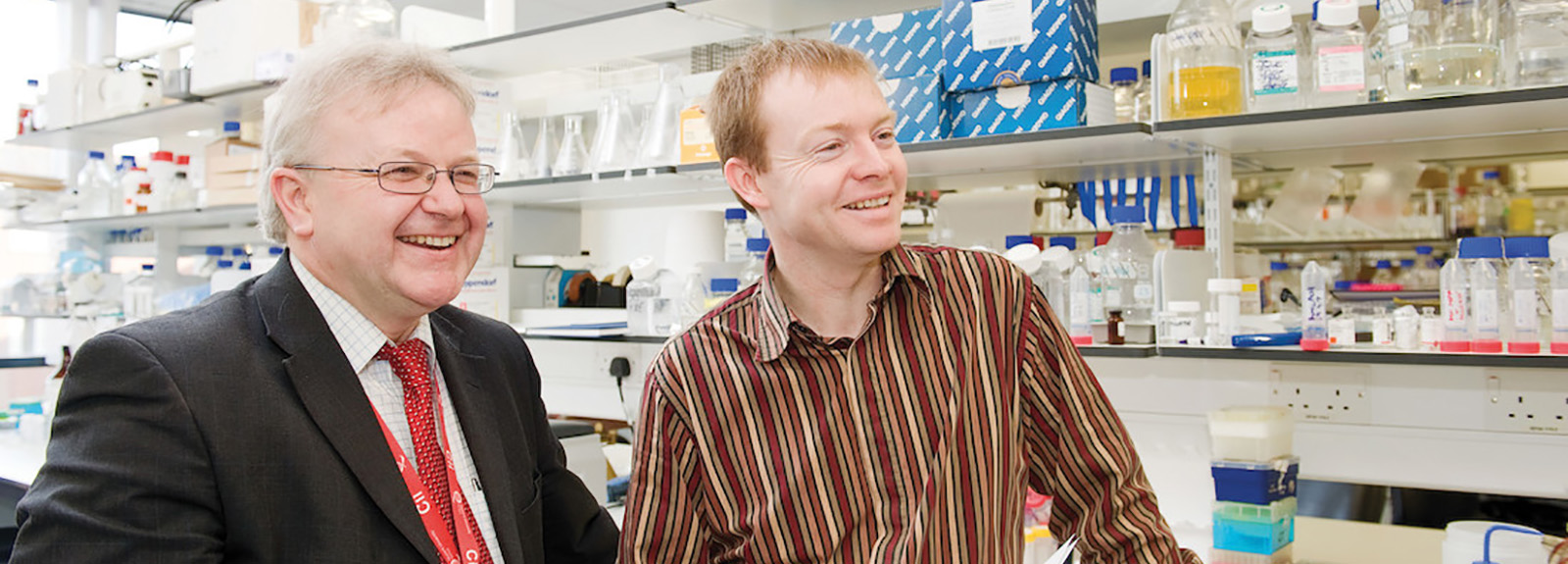iABC - inhaled Antibiotics in Bronchiectasis and Cystic Fibrosis

An ambitious IMI project led by Professors Elborn and Tunney
What iABC is about?
iABC is a EUR 50 million project that will be implemented over a five year period.
The iABC consortium, a group of world-leading lung specialists from across Europe, will develop and trial two new ‘inhaled antibiotics’ to manage chronic lung infection, the main cause of disease and death in patients with bronchiectasis and cystic fibrosis. The programme will also establish the first European patient register for bronchiectasis and identify new measures that could be used in clinical trials to assess the effectiveness of a medicine. Research and clinical organisations will work with two pharmaceutical companies: Basilea Pharmaceutica International and Novartis.
How was it initiated?
The Research Development EU team and the Health and Social Care Research and Development Office both raised our attention to the Innovative Medicine Initiatives (IMI) call in November 2013. After reading the call, we quickly realised that we were in a strong position to lead a competitive proposal. We were widely recognised as a world-leading research group in microbiome research and also had extensive experience of leading clinical trials. Moreover, we were also directly involved with European Clinical Trial Networks for both cystic fibrosis and bronchiectasis which would be essential to deliver the proposed research programme. With the help of the EU team, we organised a face to face meeting of potential partners in January 2014 in Brussels to discuss the scientific content of what we proposed and how best to write the Expression of Interest.
What about the application process?
There was a considerable amount of time, effort and hard work involved in putting together this application. We started working on the proposal in November 2013 and final contracts weren’t signed until July 2015.
Once we had agreed on the partners involved in the project (January 2014), we had a core writing team consisting of the QUB lead applicants (Stuart Elborn, Michael Tunney) and collaborators from the University of Antwerp (Miguel Ekklelenkamp) and the University of Dundee (James Chalmers). This team had weekly teleconferences and were responsible for writing the expression of Interest which was submitted in April 2014. Once selected as the consortium to move forward with a full proposal, we continued to have weekly teleconferences with the core team and industrial partners until the submission of the full proposal in November 2014. Each member of the core team was responsible for the scientific content of a work package which was reviewed by the full team to ensure both scientific quality and that activities across work packages were fully integrated.
The Research Development EU team were integral to the success of this funding application. They supported us at all stages in the process: submission of both the Expression of Interest and the Full Proposal, the interview in Brussels with the IMI expert panel (December 2014) and throughout a protracted negotiation phase. They ensured that we were working within the IMI rules and also were responsible for online submission of all necessary paperwork. In addition to supporting the Queen’s team, they helped the rest of the consortium, including the industrial partners, with all administrative requirements associated with the submission process. In collaboration with the Finance team they led the design of a complex Public-Private Partnership budget. In summary, they clearly demonstrated to IMI and the Industrial partners that Queen’s have the necessary expertise to manage ambitious research projects.
What did you learn from this experience?
We learnt that a considerable amount of time and effort is involved in bringing together and managing a large consortium and that existing track record is important. We also learnt the importance of having expertise on-site in the form of the Research Development EU team who had the necessary knowledge, skills and patience to ensure our application was successful.